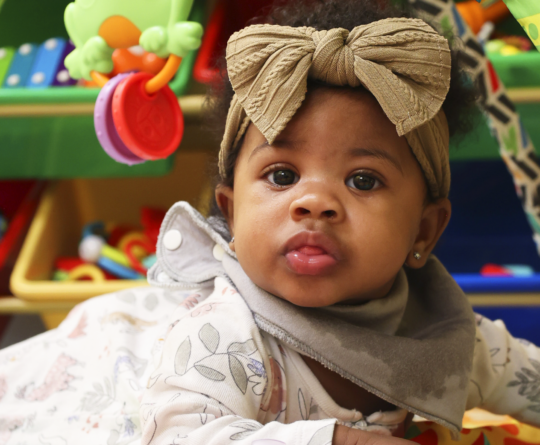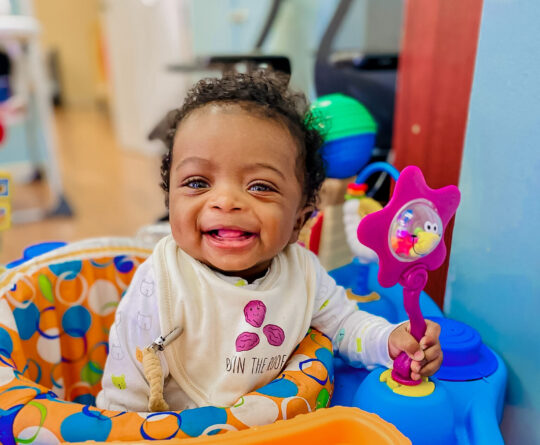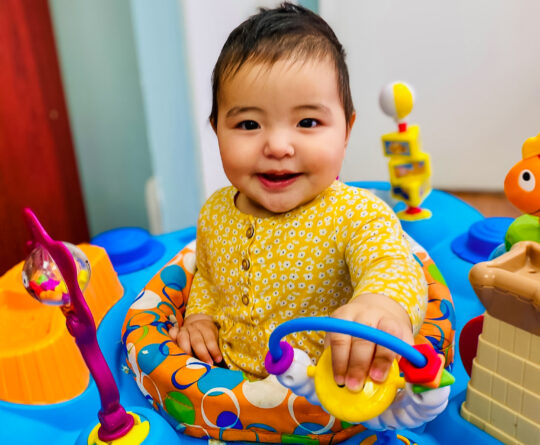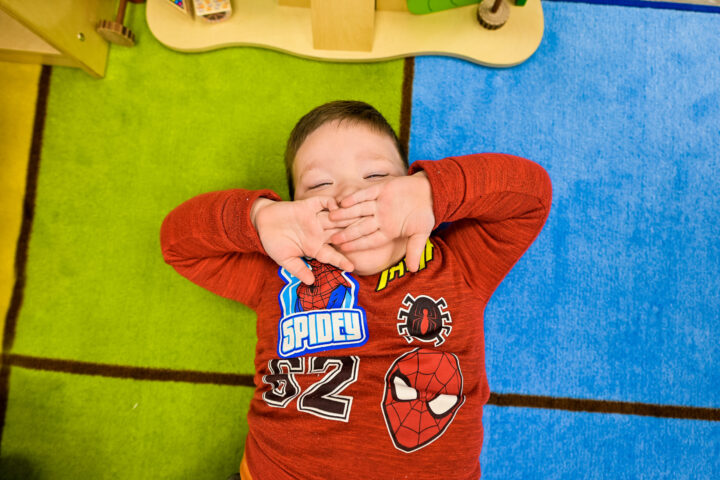
Infant Care Starting from 3 Months in New York City
At Little Scholars, our Infant Program is more than just daycare for 3 month old children. It’s a sanctuary where infants develop essential skills, explore the world around them, and begin their lifelong learning journey. With us, rest assured your infant is in loving, professional hands, evolving in a warm, educational environment, preparing not just for school, but for life.
Whether you’re searching for newborn daycare in NYC or aiming to find a comprehensive Infant Program, Little Scholars is the right place to start your child’s educational journey.
Infant Learning & Sensory Development Activities
Interactive Play
Our engaging activities maximize knowledge absorption, sparking curiosity and learning.
Sensory Exploration
Our program immerses infants in sensory-rich environments, promoting intellectual and emotional development.
Musical Moments
Singing sessions enhance cognitive development, enriching your child’s mind through melody and rhythm.
Creative Encounters
Various innovative activities and playful learning keep infants intrigued and motivated throughout the full day.
Harmonious Environment
Utilizing soft and cheerful colors to create a pleasant and stimulating atmosphere.
Balanced Daily Routine
Combining adequate rest and structured play to ensure a harmonious growth trajectory.
How to apply to our Infant (0-1 y.o.) Program
Highlighting the Core Elements of Our Infant Care Program
Every parent desires the optimal environment for their child’s growth, a place where their blossoming minds and budding personalities are nurtured with love, care, and joy. At Little Scholars, we provide just that!
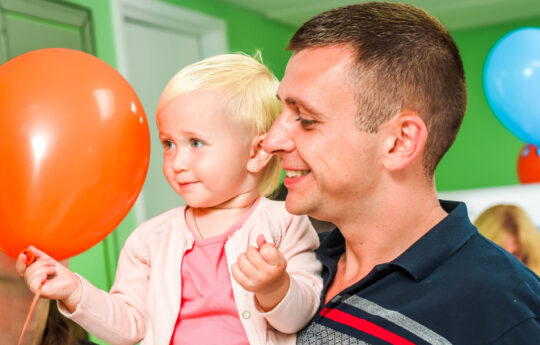
Parent Partnership
We maintain close cooperation with parents, providing detailed information about the daily schedule and progress reports.
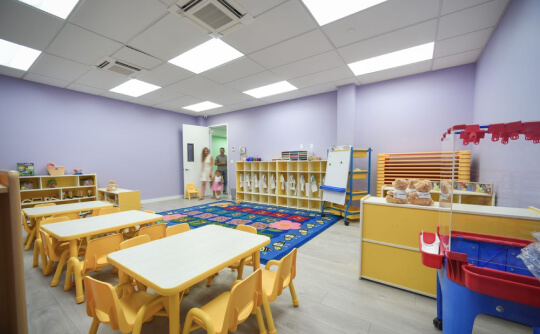
Flexible Scheduling & Payment
Our accommodating working hours and payment systems cater to diverse family needs.
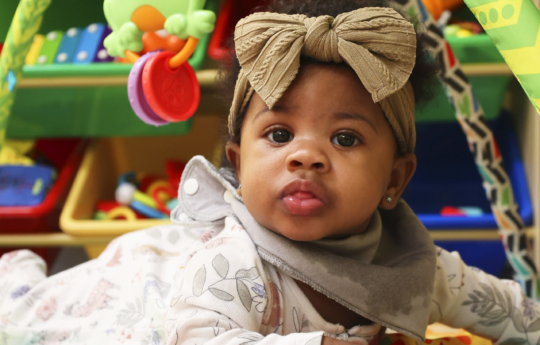
Early Enrollment
We welcome infants from the 3 months of life up to one year old, ensuring comfortable and adaptive conditions.
Day-to-day activities
At Little Scholars, every day is a new adventure filled with learning and exploration for our little ones.
From the very first year of life, our program aims to foster essential life skills and emotional intelligence through a series of thoughtfully designed activities.
Here’s a glimpse into the delightful daily experiences at Little Scholars:
Interactive Play with Varied Toys
Problem-Solving through Mazes and Blocks
Memory and Reaction Enhancement
Types of Infant Care We Offer
Little Scholars is dedicated to shedding light on the way and helping parents navigate a well considered selection of infant care daycare options, from in-home daycare to specialized care facilities, to make sure your baby's developmental journey is supported and enhanced.
Full-day infant daycare
The hours of the full-day stay are 7:00 a.m. to 6:00 p.m. The youngster is free to arrive at the infant learning center later or depart sooner, of course. The youngster is permitted to engage in additional activities throughout the entire day.
Early morning infant care
Because their child is observed even at the crack of dawn, an early morning daycare infant program, which is open from 5:00 a.m. to 8:00 a.m., would solve this problem. Knowing that their kids are well-cared for allows parents to relax about their jobs.
In-home-style routines
In-home daycare is child care offered at a professional caregiver's home or another private house. This means that your child is cared for in a home-like environment rather than a more institutional one such as a infant childcare near me.
What a Typical Day Looks Like for Infants
The infant room schedule will include time blocks for regular routines and activities that promote physical, social, and cognitive growth. It will also address each age group's physical requirements, including naps, feedings/meals, and diapering/potty training.
The infant daycare schedule begins at 8:00 a.m. with arrival and breakfast, followed by outdoor play (9:00 a.m.) and classes (9:30 a.m.). Music (10:30 am), free play (11:00 am), lunch (11:30 am), and naps (12:00-3:00 pm) all help with growth. The afternoon infant daily routine includes dinner (3:00 pm), play, and concludes with a snack (5:00 pm) and dismissal (5:30 pm).
Schedule, Nutrition & Group Sizes for Infant Daycare
Schedule
Monday – Friday
8:00 am - 6:00 pm
Nutrition
Parents need to supply breast milk or formula, as well as baby puree, to ensure their child’s individual dietary needs are met.
Groups
We prioritize comfort and safety by placing children in groups based on their age.
Classrooms
Our classrooms are not only equipped with age-appropriate learning materials and toys but are also meticulously maintained to ensure hygiene and safety.
We accept infants as young as 3 months
Our infant room daycare includes age-appropriate furnishings, learning materials, and designated areas for various activities, creating a stimulating and safe environment for day care for infants.
Trusted Infant Daycare & Childcare Near You in NYC (0–1 y.o.)
We have 1 location for our Infant Program (0-1 y.o.):
-
Little Scholars at Avenue U - 4123 Avenue U, Brooklyn, NY, 11234
-
Little Scholars in Chelsea - 600 6th Avenue, New York, NY, 10011
-
Little Scholars in Downtown Brooklyn - 345 Adams Street, Brooklyn, NY, 11201
Infant Curriculum Milestones by 12 Months
Our infant daycare schedule promotes active participation and discovery, which feeds our busy little ones’ burgeoning curiosity. By the age of 1, at Little Scholars, children are nurtured to reach pivotal developmental milestones and acquire a range of skills in the infant curriculum for daycare. Here’s what your child will learn to do in our enriching environment:
Control movements
of hands and legs, learning to grasp, reach, and touch.
Crawl
efficiently, exploring their surroundings more actively.
Walk with support
and gradually progress to independent steps, allowing enhanced mobility.
Transition between sitting, standing, and other positions
with greater ease.
Distinguish between different toys
developing preference and recognition.
Respond to their names
showing signs of memory development and recognition.
Solve simple problems
like maneuvering objects to reach a goal.
Explore cause and effect
through interaction with their environment, such as dropping toys to observe the outcome.
Recognize familiar faces
forming attachments and showing preference for known caregivers and peers.
Express a range of emotions
such as happiness, sadness, and anger, and respond to the emotions of others.
Develop basic communication skills
utilizing simple gestures like waving and pointing, and attempt to mimic sounds and words.
Enjoy social play
showing interest in other children and engaging in parallel play alongside peers.
Respond to different sensory stimuli
showing preference or aversion to specific textures, tastes, and sounds.
Explore creativity
through interaction with various colors, shapes, and sounds, cultivating an early appreciation for aesthetics.
Engage in imaginative play
using toys and objects to represent other things and acting out simple scenarios.
Feed themselves with some assistance
developing hand-eye coordination and independence.
Show signs of readiness for potty training
recognizing bodily signals and showing interest in using the toilet.
Babble in a tuneful manner
experimenting with tone, pitch, and sounds, forming the foundation for speech development.
Understand basic commands and gestures
responding to simple instructions such as "come here".
Begin to form simple words
articulating sounds that approximate real words and names.
Book a Tour at Your Local NYC Daycare Center
FAQ
What kind of care can my child expect?
Your child will receive proper care from qualified personnel and educators who are passionate about children.
The program offers specially created play areas and various creative activities.
Small group settings ensure individual attention and care for each child.
What does the infant’s daily schedule look like?
The schedule is structured with sleep, relaxation, play, and learning, following proper nutrition as established by the parents, along with exceptional sleeping rules to ensure the overall growth and happiness of the infant.
How do you manage sleeping and relaxing times for infants?
Our professionals pay special attention to the rest times of infants, ensuring they get adequate sleep, which is crucial at this age, following exceptional sleeping rules tailored to the individual needs of each infant.
Are meals included?
No, meals are not included. Families are responsible for bringing breast milk or formula and baby puree for their little one.
Is there a special environment created for the infants?
Absolutely! The classrooms are designed with calming and cheerful colors, fairy tale interiors, eco-friendly furniture, and equipped playroom to foster joy, imagination, safety, and intelligence in infants.
Do you work closely with parents?
Yes, we maintain close cooperation with parents, providing detailed information about the daily schedule and working together to observe and support the development and growth of every child.
How can I prepare my baby for a smooth transition to daycare?
Arranging your baby’s routine at home to align with our infant’s schedule will help in making the adaptation process easier for your child.
What will my child be able to do by their first birthday in this program?
By their first birthday, infants in our program will have enhanced motor skills, be able to communicate and interact, play with toys, distinguish them, talk a little, and even create new words!
What age infants do you accept for daycare?
Children under one year old can attend infant daycare. After a child’s first birthday is the best time for them to begin childcare. Although the majority of childcare facilities provide daycare for 6 month old babies, many parents wait until their children are a little older before enrolling them.
There are several social and developmental advantages to starting childcare for a daycare for 3 month old. Babies start interacting with their environment at a very young age, and childcare offers chances for early socializing and sensory experiences.
Do you accept newborns in your daycare?
Yes! Newborn daycare provides the finest care for babies until they are about two years old. Your kid will have exciting and interesting experiences every day, receive love and care from caring teachers, and acquire the information necessary to be prepared for all the great daycare for newborn milestones that lie ahead.
What is a typical infant daycare schedule?
Along with plenty of opportunity for play, sensory exploration, and educational activities, a normal infant daycare schedule also includes scheduled times for meals, naps, and diaper changes. The growth and development of infants should include both outdoor time and quiet times for comfort and bonding all are supported by daily routine in a facility.
Is there a separate room for infant care?
Indeed, a lot of centers include a particular infant room daycare just for babies, frequently with equipment and schedules catered to their requirements. A particular infant classroom at Little Scholars, which include diapering and feeding stations, age-appropriate play areas, and safe sleeping areas, are made with the unique needs of newborns in mind.
Do you provide bottles, diapers, or do parents bring them?
The best infant care center includes these in their packages. However, multiple baby daycare facilities advise bringing certain items that are appropriate for your child’s skin type if they have special needs or sensitive skin. Extra clothes are also necessary for babies in case of a bathroom emergency.
How do you ensure safety for newborns and infants?
Daycare for babies put a high priority on the safety of newborns and infants by implementing a number of measures, such as stringent hygiene guidelines, safe sleeping procedures, sufficient supervision, first aid and CPR training for staff, and upholding a secure environment. Our infant daycare NYC also prioritises maintaining the babies in a quiet, pleasant environment and communicating with their parents.


